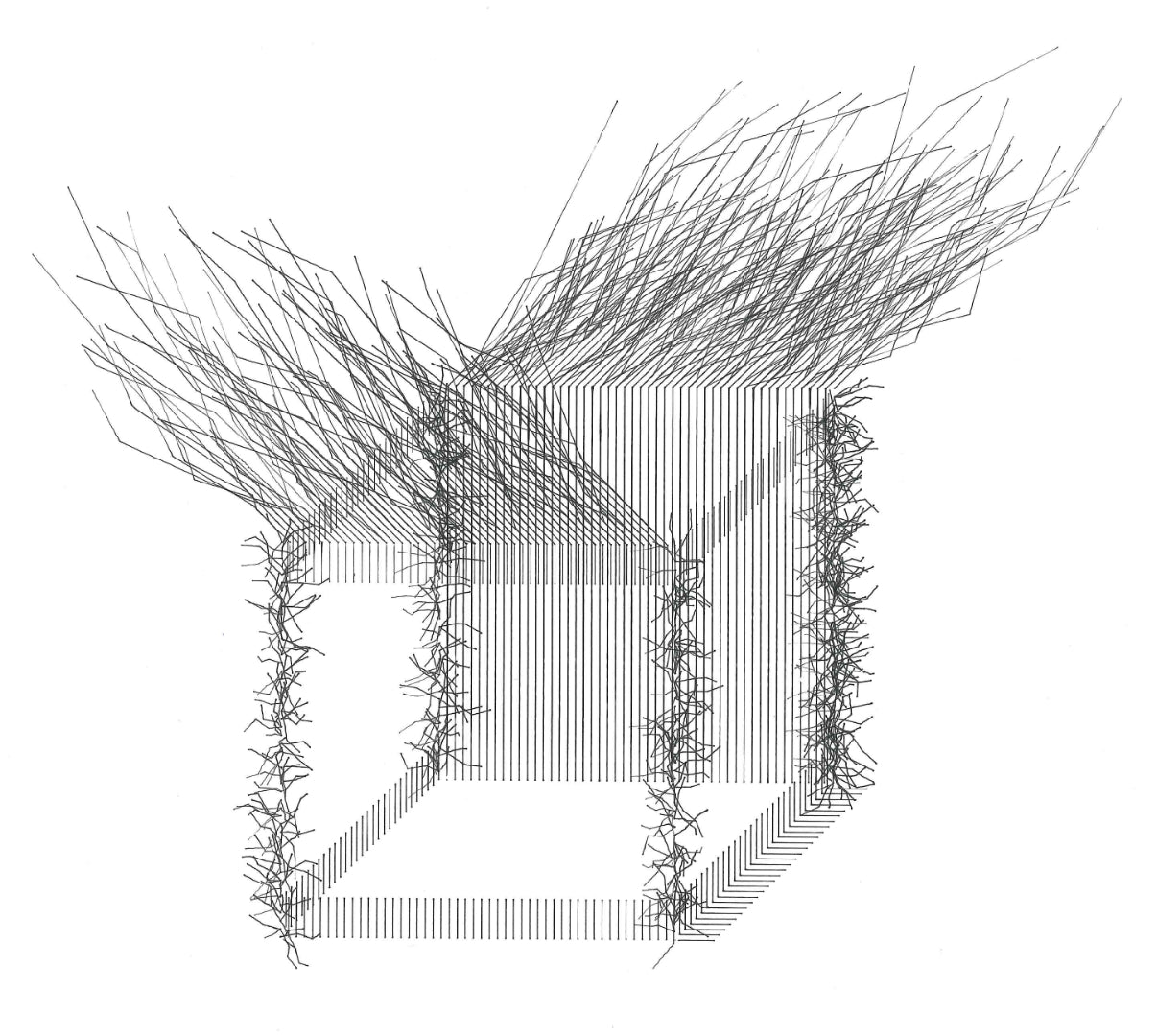HANS DEHLINGER
"There are many artists who have been recognized only posthumously or never. I could very easily have been one of them, but I am alive and still able to work on the things that intrigue me—and connect with many interesting people over them." – Hans Dehlinger
Hans Dehlinger (*1939) lives and works in Kassel and Berlin, Germany. In the early 1960s, during his studies in architecture at the University of Stuttgart (Dipl.Ing.), he was introduced to computers and programming languages and later worked as an architect and environmental planner. He continued his education at the University of California, Berkeley (M.Arch., Ph.D.), before returning to work at the University of Stuttgart. In 1980, he became Professor of Industrial Design at the University of Kassel, Germany, where he taught until his retirement in 2004.
In the early 1980s, he began to explore computers artistically, focusing on algorithmically generated line drawings. The majority of his generative artwork is based on procedures and computer code executed on pen plotters, thus incorporating aspects of both electronic and physical art. The lines can form delicate structures, dense textures, or even evoke an "unsharp" impression from sharp lines.
He is a member of the informal group known as The Algorists.
Hans Dehlinger is represented by EXPANDED.ART and by MUD Gallery in Shanghai, China.

Dehlinger's generative processes are located on a spectrum between "one-pass processes," in which drawings are generated by programs without any intermediate visual feedback by the artist, and "composite processes," in which drawings are generated in a sequence of steps.
His work has received worldwide recognition and was first shown in Europe, later in Canada, Russia, Australia, the USA, Armenia, and China. Among his exhibitions are multiple appearances at the SIGGRAPH Art Show, the SIGGRAPH Traveling Art Show, ISEA (International Symposium on Electronic Art), the Bridges Art Exhibition, as well as several solo shows.
The works of Hans Dehlinger are held in private and institutional collections, such as Spalter Digital, the Foundation Herbert W. Franke, the Victoria and Albert Museum in London, the Block Museum of Art in Evanston, Illinois, the Technik-Museum Kassel, and the Francisco Carolinum in Linz.










